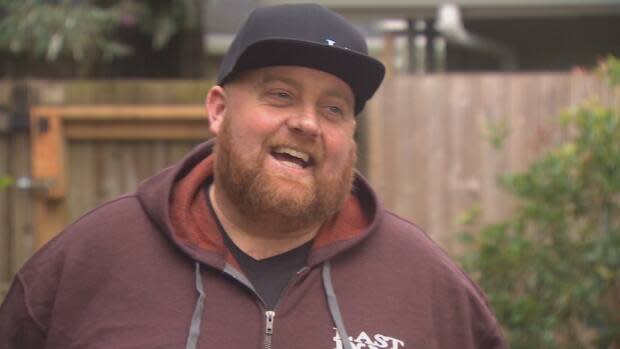More resources needed for drug users in B.C. suburbs, advocates say
After 20 years of addiction, one overdose, and six weeks of waiting to get into a treatment centre, Tyler Strachan is 91 days clean — and counting.
The 38-year-old crane operator began his recovery at Last Door Recovery Centre, an addiction treatment facility with a waitlist that's never been longer.
He believes there needs to be more focus on prevention and recovery in the suburbs. It's where many drug users, like him, use alone and overdose alone, and where five people were found unconscious after overdosing in a Surrey home this weekend.
"Overdose happens everywhere," he said.
"It could be your next-door neighbour, it could be anywhere at any time and most likely it is happening in your neighbourhood."
The five victims this weekend were in a "nicer neighbourhood" and required four doses each of naloxone to be revived, RCMP Cpl. Joanie Sidhu said. They don't fit the image of what many people picture when it comes to what a drug user looks like, she added.
Giuseppe Ganci, director of community development at Last Door Recovery, says he's been advocating for years for health-care and government leaders to focus more on more preventative measures, particularly for drug users in the suburbs.
The centre serves around 80 people at a time. Now, the waitlist is around six to eight weeks and can't keep up with demand, especially since the COVID-19 pandemic began, Ganci said.
A safe supply is a good first step for people who live in the Downtown Eastside, he said, but doesn't help people who use alone in the suburbs because they don't want to use with other people.
"Addiction seems to always start in the 'burbs," said Ganci, a former user who has been in recovery for 10 years.
"That is the starting point, so why aren't we focusing on more preventative measures for that population?"
Addiction will often escalate if people aren't given access to and encouraged to get treated at the start, Ganci said.
Work is being done to focus on where overdoses are happening and support people who would benefit from recovery, Provincial Health Officer Dr. Bonnie Henry said.
Ganci says there needs to be more money put toward prevention and treatment.
"There's been no awareness campaign to encourage people to even seek recovery and seek treatment," he said.
"I think we need to take a look at the idea that recovery is possible and attractive, and even offered. In most cases it's not even offered in this province anymore. Our treatment centre is like a last resort. It should be the first resort."
Strachan agrees.
He would often use drugs in the parking lot at the end of the workday, a ritual he and his coworkers in construction called "safety meetings," he said. After, he drove home to the suburbs where he'd continue using alone.
The best part of his past three months in treatment has been regaining relationships with his loved ones and close friends, he said.
"This really works. I feel really good and I love myself again," he said.
"Residential treatment works and it's definitely an avenue that needs to be explored."


